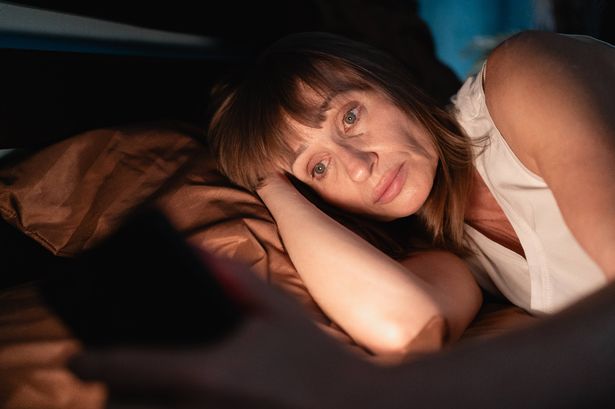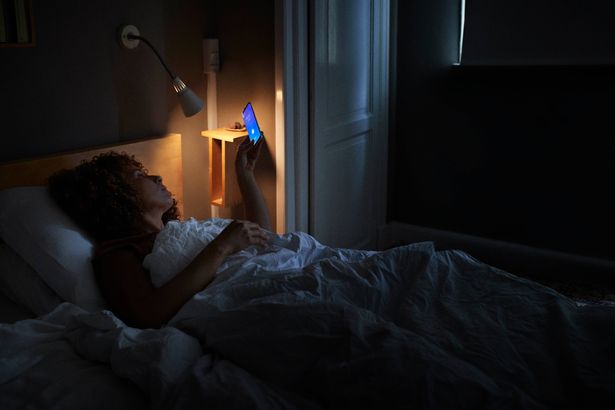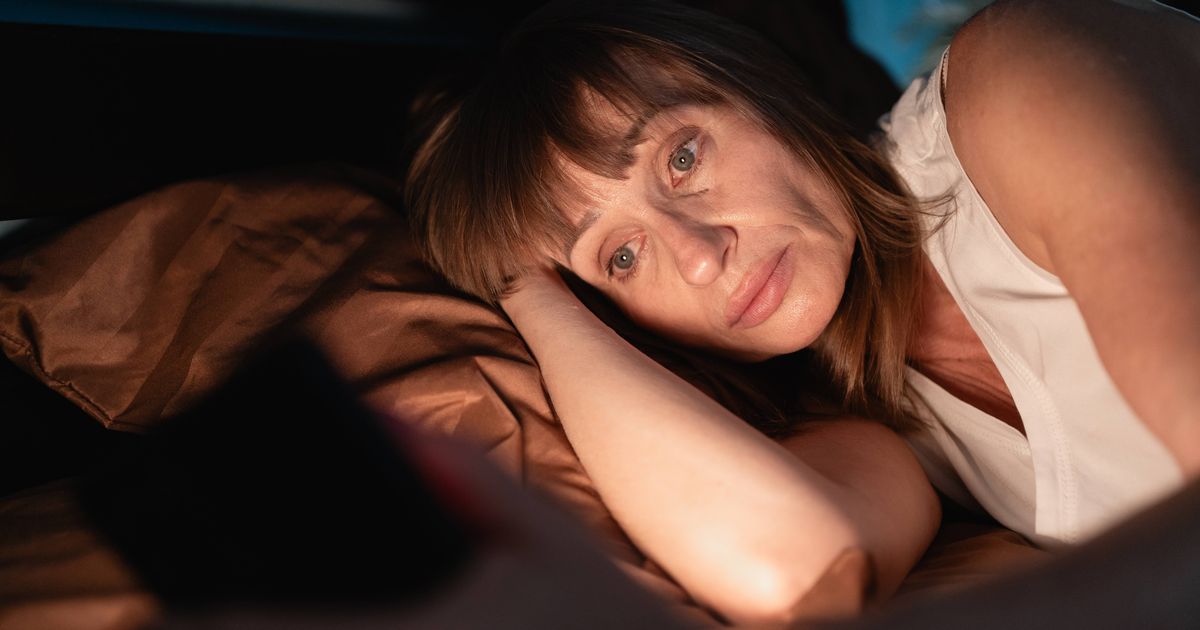A new study has found that millions of women across the UK are waking up at the same time every night on average – but there’s a reason behind it
Charlotte Smith Senior Lifestyle Content Editor and Natalie King
04:30, 26 Sep 2025
This article contains affiliate links, we will receive a commission on any sales we generate from it. Learn more If you wake up in the middle of the night there could be a simple explanation(Image: Andrii Lysenko via Getty Images)
If you wake up in the middle of the night there could be a simple explanation(Image: Andrii Lysenko via Getty Images)
Research has shown that millions of women across Britain are waking up at exactly the same time each night. It comes as people have been urged to make a 15 minute change to their night routine ahead of clock changes.
Data from Dunelm has discovered that many women going through the menopause are waking at around 3.29am on average. A spokesperson explained: “New research from Dunelm reveals 3.29am to be the most common time that menopausal women are waking up in the night.”
The reason is mainly down to the menopause, with an estimated 13 million people in the UK being perimenopausal or menopausal, reports Gloucestershire Live. One of the most widespread symptoms of this life and health transition is sleeplessness.
The study discovered that three-quarters of women find themselves awake in the early morning hours – considerably earlier than the UK’s average wake up time of 7am.
 Many women reported not being able to get back to sleep(Image: Klaus Vedfelt via Getty Images)
Many women reported not being able to get back to sleep(Image: Klaus Vedfelt via Getty Images)
More than half (53%) of women say they simply toss and turn until they manage to drift back off to sleep. Up to 30% say they read a book, while the same number scroll on social media. Meanwhile, 20% watch TV, and 17% just stare at the clock.
The study revealed that more than two-thirds (69%) of women indicated that menopausal insomnia has negatively affected their emotional well-being.
Additionally, about 60% were not aware of the strategies that could help them cope with menopausal insomnia. About half of the individuals reported feeling they didn’t have a support system during this tough time.
Surprisingly, just 25% have reached out to their doctor for assistance.
What is menopause?
Menopause marks the time when menstrual cycles come to an end due to a decline in hormone levels. This transition typically takes place in women aged 45 to 55, although it can commence earlier for some.
Menopause is considered to have taken place when you’ve had no period for 12 consecutive months because your ovaries have ceased producing hormones. Following this, you are postmenopausal.
Menopause can occur naturally or be induced by various factors, such as surgical procedures like oophorectomy (removal of the ovaries) or hysterectomy (removal of the uterus), cancer treatments including chemotherapy, or even genetic factors. In some instances, the cause remains unknown.
During menopause, individuals may experience symptoms such as anxiety, mood swings, brain fog, hot flashes, and irregular periods. These symptoms can start several years before periods stop and may persist afterwards.
 Women should speak to their doctor about managing menopause symptoms(Image: Getty Images/iStockphoto)When does it happen?
Women should speak to their doctor about managing menopause symptoms(Image: Getty Images/iStockphoto)When does it happen?
According to the NHS, the menopausal transition typically begins between the ages of 45 and 55. This phase generally lasts around seven years, but it can sometimes extend up to 14 years.
Menopause that occurs before the age of 45 is known as early menopause. Menopause that happens before the age of 40 is referred to as premature menopause.
About 5% of the population experiences spontaneous (natural) early menopause. Meanwhile, premature menopause is estimated to affect 1% of women under 40 and 0.1% of women under 30.
Early menopause differs from the typical menopause, which usually occurs between the ages of 45 and 55. In the case of early menopause, the ovaries fail to function properly, leading to a cessation in egg production much sooner than anticipated.
Alison Hammond shares 11 stone weight loss secret without the need for strict dieting
Doctor shares 86p household hack that could cut two days off your cold
What are the signs of menopause?
As people go through the menopause, different symptoms may be experienced. These range from the well-known to the more unexpected and can significantly impact daily life, such as sleep, which may worsen due to hormonal changes or the effect of other menopausal symptoms.
Symptoms can be:
- hot flushes, when you have sudden feelings of hot or cold in your face, neck and chest which can make you dizzy
- difficulty sleeping, which may be a result of night sweats and make you feel tired and irritable during the day
- palpitations, when your heartbeats suddenly become more noticeable
- headaches and migraines that are worse than usual
- muscle aches and joint pains
- changed body shape and weight gain
- skin changes including dry and itchy skin
- reduced sex drive
- vaginal dryness and pain, itching or discomfort during sex
- recurrent urinary tract infections (UTIs)
- sensitive teeth, painful gums or other mouth problems
Many also experience problems with sleep. This is due to alterations in hormones or the impact of other symptoms that may keep them awake or disrupt sleep.
Menopause expert Dr Clare Spencer says: “We always recommend you speak to your healthcare practitioner or a menopause doctor if you’re experiencing menopausal symptoms or want to talk about your long-term health. They can discuss different options with you, including hormone replacement therapy (HRT), and advise on any lifestyle changes that could help.
“They should also be able to sign post you to information about the menopause and ways of managing symptoms.”
